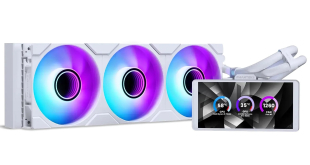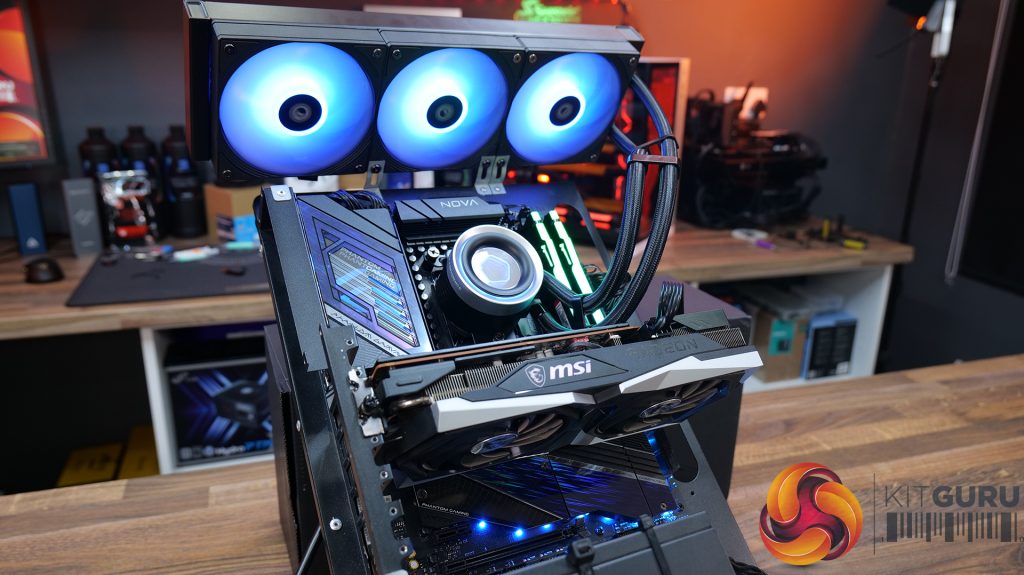
Test System Specifications:
- CPU – AMD Ryzen 9 9950X
- Motherboard – ASRock Phantom Gaming X870E Nova WiFi
- Memory: 32GB (2 x 16GB Modules) Kingston Fury DDR5-6000
- Graphics card: MSI Radeon RX 6600 XT Gaming X
- Storage: 1TB Corsair MP600 Elite PCIe Gen4x4 NVME M.2 SSD
- Power Supply: Seasonic Prime TX-1000
- Chassis: Open Test Bench
- Thermal Compound: Arctic MX-6
- O/S: Windows 11 Version 24H2
Testing Methodology:
We are primarily focussing on the performance of each cooler at 100% fan speed and also when locked to 40dBA noise output. We will focus on cooling performance using a manual overclock with all-core frequency and VCORE locked to 5.2GHz/1.3v (AMD) and 5.5GHz/1.3v (Intel) and Precision Boost Overdrive performance.
- The test data is logged using HWINFO and the final 10 minutes of the data is calculated to find the average CPU temperature and CPU clock multiplier (AMD PBO Test) and then plotted in the charts.
- For testing, we use a 30-minute looped run of Cinebench R23 and record the steady-state CPU temperature at the end of the test. This ensures that the CPU has had ample time to warm up and reach a steady state under all of the coolers.
- The ambient is maintained at 19-21 degrees Celsius. Where there is variation beyond this temperature range, we add extra repeated tests to ensure consistency. However, this is well controlled now with A/C.
- We also test each cooler with at least two fresh installs (typically three) to mitigate the likelihood of poor mounting spoiling results.
- Ambient temperature and humidity are controlled via a mini split air conditioning system inside the test room. Ambient temperature is maintained between 19-20C, Temperature delta figures are shown in the charts (ambient temperature is deducted from the measured component temperature).
Test Results:
Acoustics
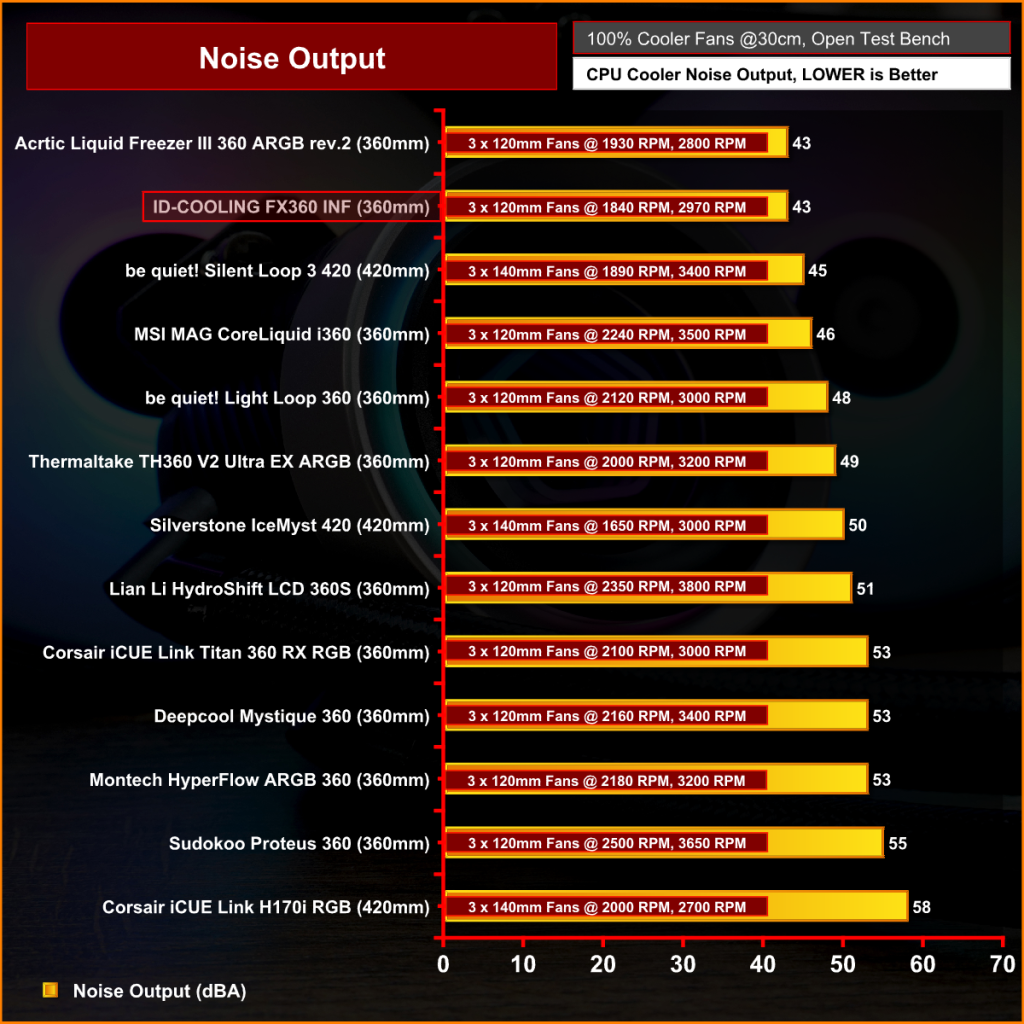
We’ll start by looking at noise output as this will give us a good indication of performance based on noise.
At maximum fan speed the ID-Cooling FX360 INF is one of the quietest coolers we have tested so far on the 9950X system, equalling the Arctic Liquid Freezer 3 360 at 43 decibels. But fan speed is relatively low at just over 1800rpm so let's see how this translates to thermal performance.
Thermal Performance: AMD Ryzen 9 9950X
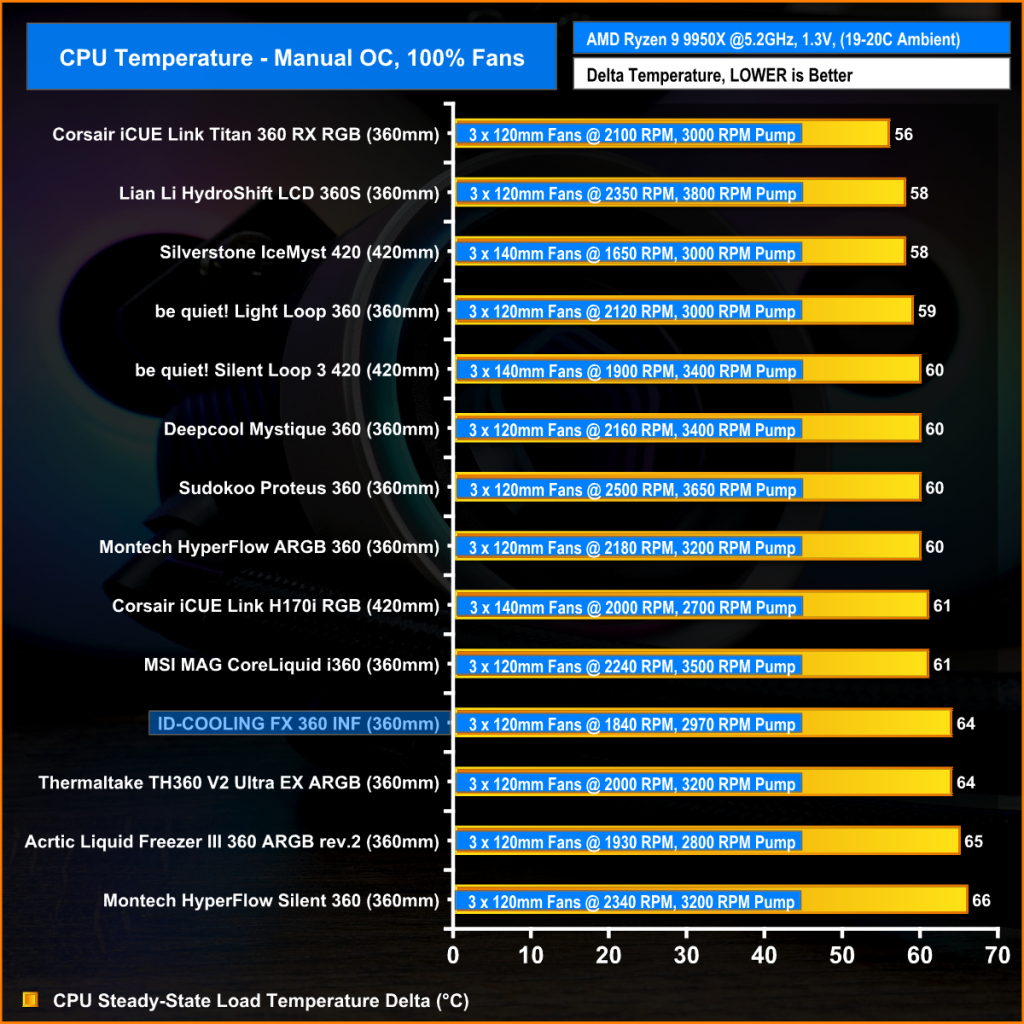
In our first manual OC test, the coolers are running with fans and pump speed maxed out. The ID-Cooling FX360 INF manages OK CPU temperature at this point, there's no sign of overheating but it's quite low in the chart with an average load temperature of 64°C.
The focus on low noise and relatively low fan speed could be a contributing factor here, but it performs on par with the Arctic Liquid Freezer III 360, which has similar low noise. Let’s see how it performs in the noise-normalised test.
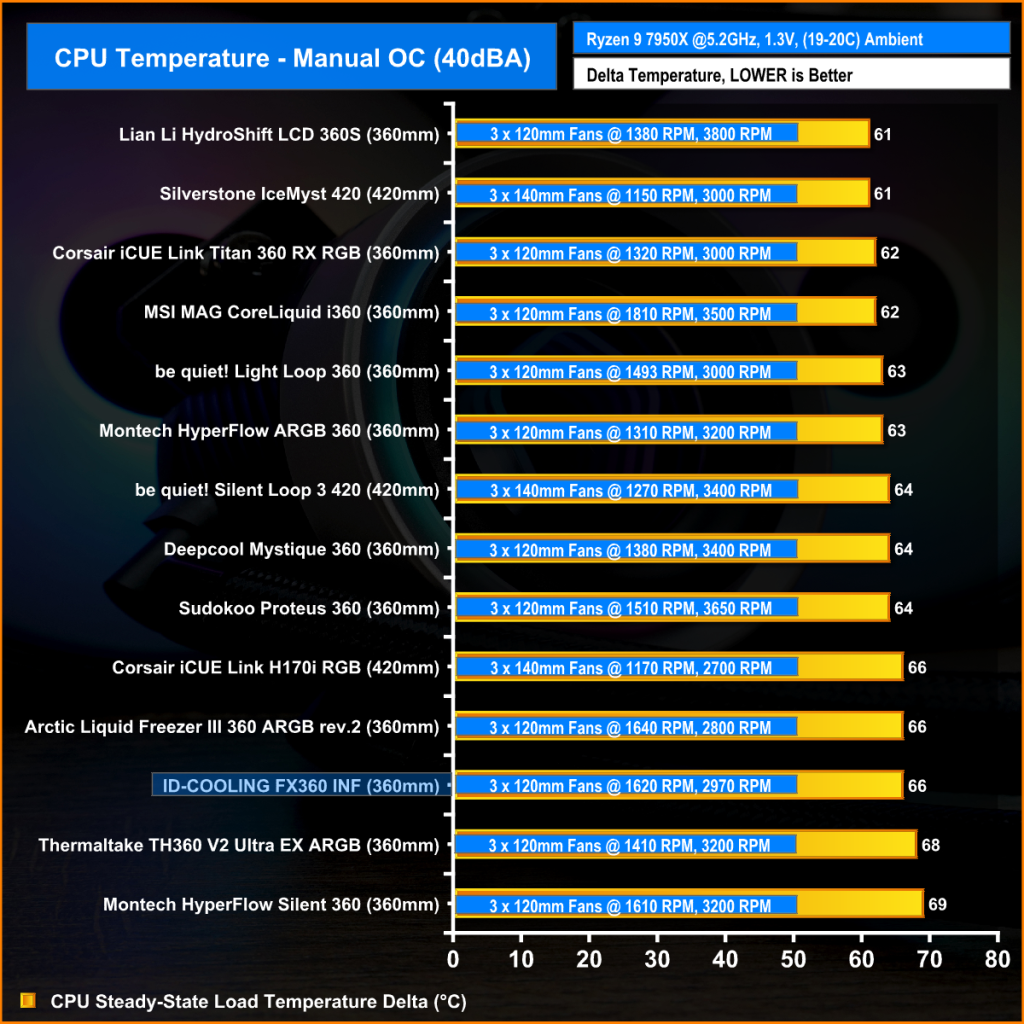
In the noise normalised test, all cooler fan speeds are reduced to hit a maximum noise output of 40dBA. To reach the 40dBA limit, the FX360 INF fan speed only has to be lowered by 200 rpm, so the performance isn’t affected massively.
But compared to some of the best coolers, it’s not producing great thermals with an average load temperature of 66°C over ambient but again its equal with the Arctic Liquid Freezer III 360 and there's no sign of overheating.
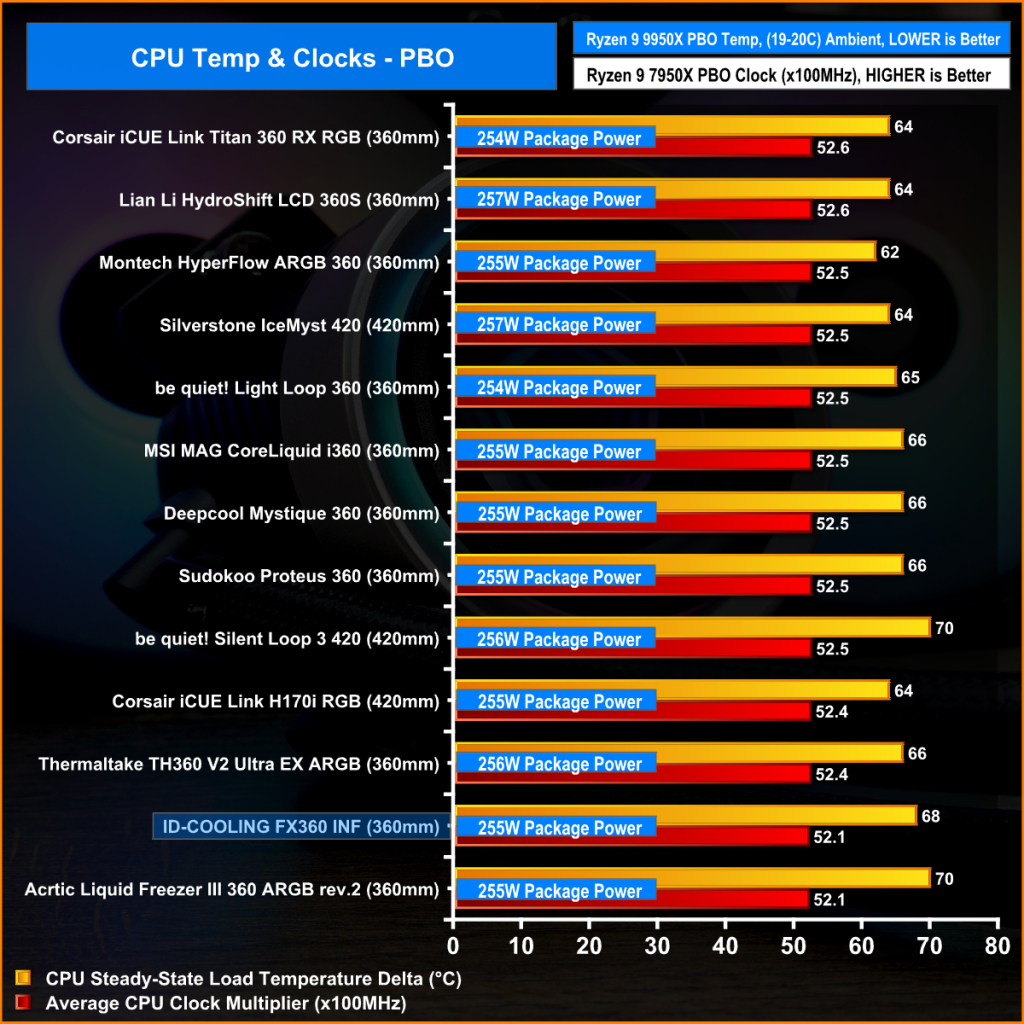
In the PBO test, the important metric is clock multiplier as the CPU automatically adjusts clock speed based on a target temperature, so the difference in CPU temperature between coolers is close.
The best coolers in this test will hit a clock multiplier of around 52.6x, but the ID-Cooling FX360 INF only manages an average clock multiplier of 52.1, which means the CPU is running approximately 50MHz slower with this cooler compared to the best we have tested. It's not a huge performance loss, but it is one of the lowest scores we have had on this test system so far, so it’s a little disappointing.
 KitGuru KitGuru.net – Tech News | Hardware News | Hardware Reviews | IOS | Mobile | Gaming | Graphics Cards
KitGuru KitGuru.net – Tech News | Hardware News | Hardware Reviews | IOS | Mobile | Gaming | Graphics Cards


